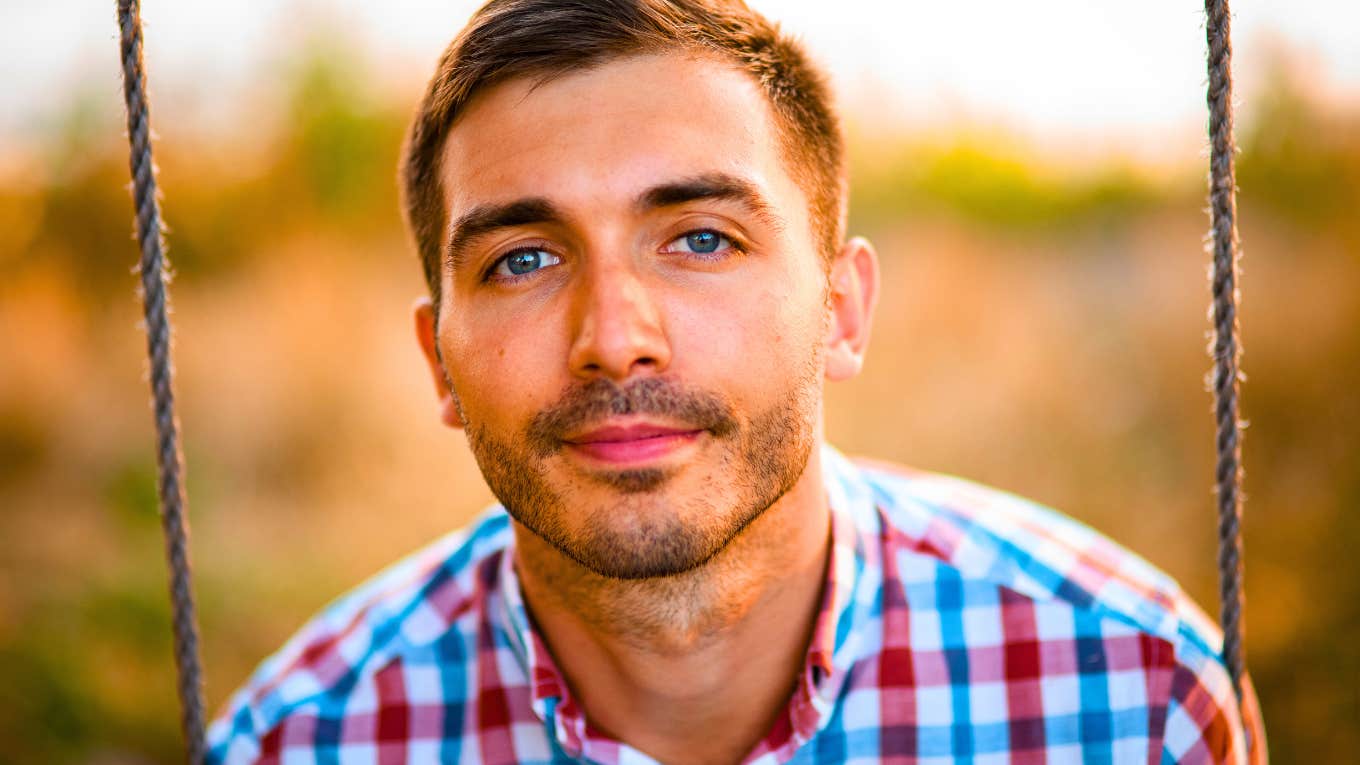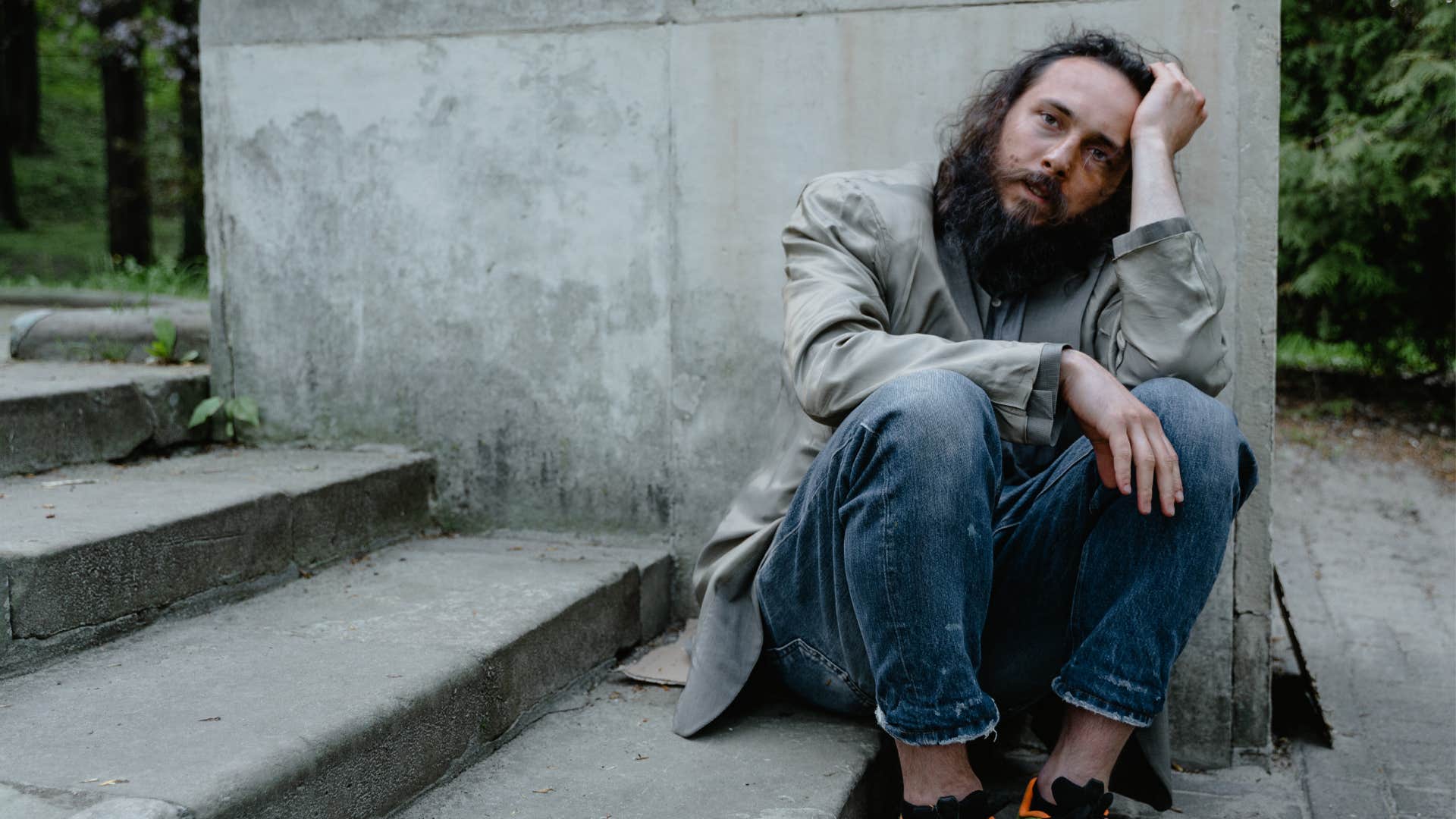People Who Quietly Doubt Themselves Often Say These 11 Phrases Without Realizing
Confidence can be quiet, but self-doubt rarely is.
 Maksym Fesenko / Shutterstock
Maksym Fesenko / Shutterstock Most of us try to appear confident, even when we’re not. After all, confidence is the magnetic secret sauce that makes so many people just plain irresistible. However, those of us who are a little rattled tend to show our insecurities.
Self-doubt has an odd way of showing up in conversation, even when you’re trying to hide it, as people who quietly doubt themselves often say some telling phrases without even realizing what they're doing. These phrases betray their true insecurities, letting whoever they are talking to in on their little secret.
People who quietly doubt themselves often say these 11 phrases without realizing
1. 'I’m not that [negative trait], am I?’
 Liza Summer from Pexels via Canva
Liza Summer from Pexels via Canva
I’ll let you in on a little secret of my own. Many people who feign confidence doubt themselves every single day. Once in a while, they will actually ask for reassurance. If they do this with you in private, that’s a sign that they really, truly trust you.
Most people who are insecure need reassurance, even if it’s logically their right to feel confident. Please be good to the people who ask you to assure them. They are allowing themselves to be painfully vulnerable in the process.
2. ‘Thanks, but anyone could have done it’
 AndreyPopov from Getty Images via Canva
AndreyPopov from Getty Images via Canva
The most surprising thing I’ve learned about many high-achieving people is that they don’t usually view themselves as all that spectacular. They tend to think they’re pretty much average, or maybe even below average.
These people don’t see their feats as amazing, even when they are. That’s because their self-doubt tends to get in the way, leading to Imposter Syndrome.
3. ‘I don’t know if I can handle that’
 alexxx 1981 from Getty Images Signature via Canva
alexxx 1981 from Getty Images Signature via Canva
When you doubt your abilities, the last thing you want to deal with is a task that could potentially expose your lack of capability. So, you end up procrastinating or just coming up with excuses as to why you can’t be the one to do it.
People who say this find that it’s easier to come up with an excuse than to actually face their fears.
4. ‘It would have been fine if that person hadn’t [insert what they did here]’
 simona pilolla via Canva
simona pilolla via Canva
While we’re talking about excuses, let’s talk about one of the other habits of the chronically insecure: externalizing their insecurities. One of the biggest reasons I avoid insecure people at work is that they tend to point fingers at others.
In psychological terms, this is called projection. If you tend to doubt yourself or hate certain traits within you, you’re more likely to pick others apart for those very traits. If you see someone who seems to come down on you extra hard, it’s likely because they doubt themselves.
5. ‘Did I mention that I’m a superstar at this?’
 Prostock-studio via Canva
Prostock-studio via Canva
People who secretly doubt themselves may make a point of trying to hide how badly they think of themselves. To do this, they often will brag about themselves to make it sound like they are overconfident, and to a lesser point, sell others on their skills.
Heavy bragging is never a good sign. If anything, it’s a warning sign that they may be hiding some serious issues.
6. ‘I don’t need help’
 Mart Production via Canva
Mart Production via Canva
Another sign of a person who doubts themselves is the way they react when someone offers help. People who are confident (or just aware that they need help because they’re lost) tend to be okay with a little help.
Those who secretly doubt themselves tend to be rigid about getting help, often to the point of being manipulative. The answer is almost always no because they are so scared it’ll expose them as clueless.
7. ‘If you need a bad example, here I am’
 Valerii Honcharuk via Canva
Valerii Honcharuk via Canva
There’s often a certain quiet level of truth in jokes, especially when people keep making them based on a particular theme. Self-deprecating jokes are meant to alleviate tension, but they often give people an out to put themselves down in a way they will believe will put others at ease.
Truth be told, self-deprecating humor is often a warning sign of insecurity that hasn’t been dealt with yet. It can also become a defensive crutch that signals to others that you will tolerate disrespect.
9. ‘[Silence]'
 nojustice from Getty Images via Canva
nojustice from Getty Images via Canva
Sometimes, quiet doubt is quite literally just that: silence. They won’t actually raise their voice when they want to say something. They won’t ask to join you if you’re going out. They won’t say they’re struggling because they feel like a burden.
In terms of fight or flight, this is basically akin to having a freeze reaction. People who stay silent when they are uncomfortable generally think it’s just smarter to say nothing at all.
9. ‘I’m sorry! I’m sorry!’
 Africa Images via Canva
Africa Images via Canva
Most of us have met a coworker who is constantly apologizing, most often an intern or someone new on the team. People who doubt themselves are often ready to apologize for everything, including things that aren’t even remotely within their locus of control.
This can also be a sign of a person who grew up in an abusive household. Their apologies stem from their habit of attempting to keep the peace when they know their surroundings can become explosive.
10. ‘Are you sure I’m doing this right?’
 roboriginal from Getty Images via Canva
roboriginal from Getty Images via Canva
Even if you’re a person who tends to keep self-doubt quiet most of the time, there will be moments when you’re going to ask for reassurance. Sometimes, it comes in the form of asking if you’re really as bad as you feel you are.
At other times, it can come in the form of being told to give near-perfect work a once-over.
11. ‘I really think I should get a second opinion’
 dimaberlinphotos via Canva
dimaberlinphotos via Canva
Here’s the thing most people don’t get. No matter how qualified they may be, people who quietly doubt themselves can’t really rely on what they see or think when making decisions. They just don’t believe in themselves enough to ever make a solo judgment call.
As a result, they rarely make decisions without consulting others. They always ask for a second opinion, even if it’s from an intern or a family friend.
Ossiana Tepfenhart is a writer whose work has been featured in Yahoo, BRIDES, Your Daily Dish, Newtheory Magazine, and others.

